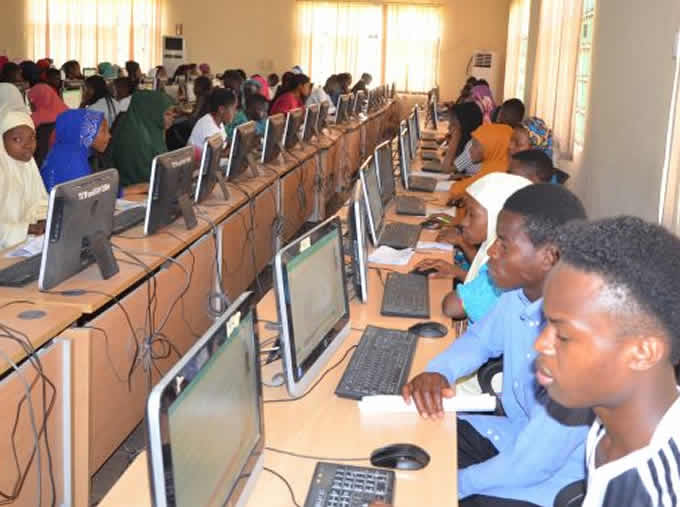The 2025 Unified Tertiary Matriculation Examination (UTME), conducted by the Joint Admissions and Matriculation Board (JAMB), has unveiled a complex interplay of accessibility measures, academic performance, and the persistent challenge of examination malpractice. While JAMB reaffirmed its commitment to supporting candidates with disabilities, a surprising case of impersonation involving two blind individuals highlighted the multifaceted nature of ensuring fair and credible examinations. The release of the UTME results also painted a concerning picture of overall candidate performance, with a significant majority scoring below the average benchmark.
JAMB, under the leadership of Professor Ishaq Oloyede, has consistently emphasized its dedication to providing equal opportunities for all candidates, including those with disabilities. The Joint Admissions and Matriculation Board Equal Opportunity Group (JEOG), led by Professor Peter Okebukola, plays a crucial role in facilitating the participation of these candidates. JAMB not only refunds the registration fees for blind and other categories of challenged candidates but also covers their transportation, accommodation, and meals during the examination period. This year, the JEOG successfully facilitated the examination of 501 candidates across 11 centers nationwide, demonstrating the board’s commitment to inclusivity. However, the revelation of a blind undergraduate impersonating another blind candidate exposed a vulnerability in the system, underscoring the ongoing need for vigilance against malpractice even within specialized support structures.
The release of the 2025 UTME results revealed a sobering statistic: over 1.5 million out of the 1.9 million candidates who sat for the exam scored below 200 out of a possible 400 marks. This benchmark, often considered the average passing score, signifies a significant challenge in terms of academic preparedness. The UTME, which assesses candidates across four core subjects, including the mandatory Use of English and three other subjects chosen based on the intended course of study, serves as a crucial gateway to tertiary education in Nigeria. The low performance rate raises concerns about the effectiveness of secondary education and the preparedness of students for higher learning.
The Minister of Education, Dr. Tunji Alausa, offered a contrasting perspective on the results, attributing the seemingly poor performance to the government’s intensified efforts to combat examination malpractice. This suggests that previous years’ results might have been inflated due to widespread cheating, and the current figures represent a more accurate reflection of students’ actual academic standing. While this interpretation offers a positive spin on the situation, it also underscores the deeply entrenched nature of examination malpractice within the education system and the ongoing need for robust measures to ensure the integrity of assessments.
The case of the blind impersonator throws into sharp relief the complexities of ensuring equity and fairness in examinations. While JAMB’s efforts to support candidates with disabilities are commendable, the incident highlights the potential for manipulation and the need for constant vigilance against malpractice in all forms. It raises questions about the effectiveness of the verification processes employed for candidates with disabilities and the potential need for further safeguards to prevent similar incidents in the future. The incident also underscores the importance of ethical conduct and the responsibility of all stakeholders, including candidates and their support networks, to uphold the integrity of the examination process.
In conclusion, the 2025 UTME cycle presents a mixed bag of progress and challenges. JAMB’s commitment to inclusivity through the JEOG is laudable, yet the instance of impersonation reveals vulnerabilities in the system. The overall low performance of candidates, while potentially reflecting increased effectiveness in combating malpractice, also raises serious concerns about the quality of secondary education and student preparedness for higher learning. Moving forward, JAMB and the Ministry of Education face the critical task of strengthening measures against malpractice while simultaneously addressing the underlying factors contributing to low academic performance to ensure a more equitable and effective pathway to tertiary education for all Nigerian students.














